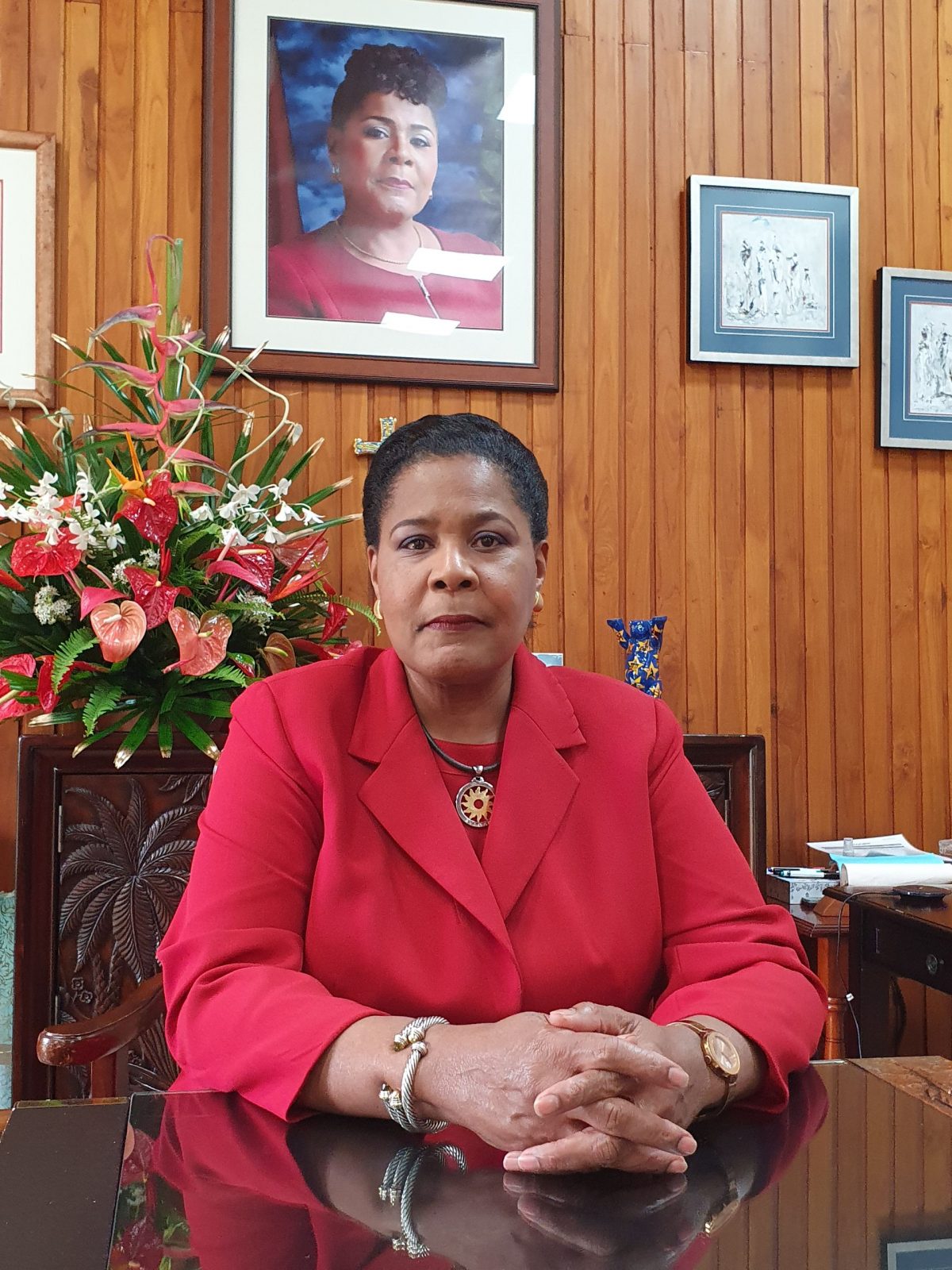(Trinidad Guardian) Unvaccinated Special Branch police officers have been moved from President Paula-Mae Weekes and Prime Minister Dr Keith Rowley’s security details.
Commissioner of Police Gary Griffith on Saturday confirmed that the officers attached to the Office of the Prime Minister and Office of the President had to be moved because they refused to take the COVID-19 vaccine.
In a brief exchange with Guardian Media, Griffith said the head of the Special Branch, weighing health concerns raised by the President and Prime Minister, “acted appropriately” and directed that all officers assigned to both offices had to be fully vaccinated.
“Those who refused to be vaccinated were transferred and replaced by those who agreed to be vaccinated. These officers are in direct contact with these two officeholders daily, inclusive of the official vehicles, so it was the obvious thing to do,” Griffith said.
Griffith did not divulge how many officers had to be swapped and how many had refused to take the vaccine. The officers who refuse to take the vaccine were “simply transferred to another post,” he added.
When asked if unvaccinated officers are moved to duties that do not involve interaction with the general public, Griffith did not respond.
The issue of unvaccinated security for the two highest offices in the land came up last week when it was reported that President Weekes said that she did not want unvaccinated staff around her or her 92-year-old mother.
Both women were vaccinated on April 6 and June 7 respectively.
On Thursday, the President’s communications adviser Cheryl Lala told Guardian Media, “Those people who aren’t vaccinated and who don’t want to be vaccinated…were asked to be rotated back to whatever job they used to do before they came to the Office of the President.”
Prime Minister Rowley also made it clear at last Thursday’s post-Cabinet media conference in Tobago that he had also taken the decision not to have unvaccinated officers in his security detail.
“I too had taken a decision because I am in the group of people who are particularly exposed to the virus so I will do everything possible to reduce or minimise my exposure to get the virus. I did that but unfortunately, I was infected,” he said.
Rowley tested positive for COVID-19 on April 6, 2021, the day he was due to get his first shot of the vaccine. He got his first dose of the Sinopharm vaccine on July 21, 2021.
The Prime Minister also registered his disappointment with teachers who refused to be vaccinated during her post-Cabinet briefing. He said many teachers remain unvaccinated despite the Government’s mass vaccination programme earlier this month that was focused specifically on those who had to administer the Secondary Entrance Assessment (SEA) and Caribbean Examination Council (CXC) exams. Some 4,000 vaccines were allocated for all teachers and exam invigilators in that exercise.
Last week, the Ministry of Education also launched its mass vaccination drive seeking to facilitate all teaching and non-teaching staff. It was announced then that another 5,000 vaccines were set aside for teachers.
Last Thursday, Rowley said the slow rate of vaccination among teachers was a source of concern, as the Government was working to return the nation’s children to in-person classes when the new school year resumes in September.
Within the food industry, there was also some hesitation and a Tobago restauranteur lamented that a large number of workers did not want to be vaccinated. Fast food giant, KFC also had to use incentives to get its staff vaccinated.
The issue of vaccine hesitancy become a major topic of discussion after the Prime Minister hinted two weeks ago that if a more dangerous variant threatened the population, the Government could take steps to make vaccines mandatory.








